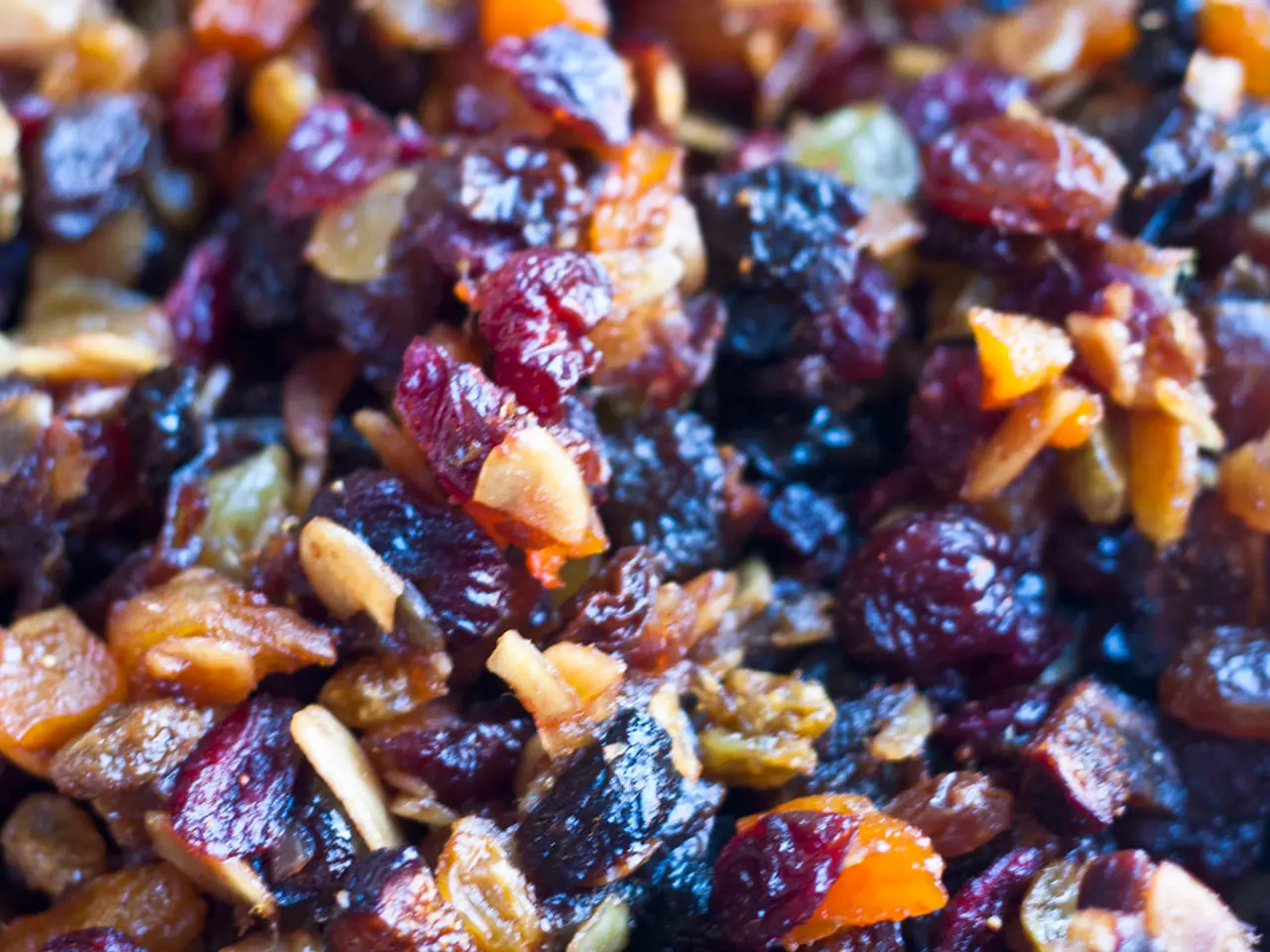Dietary guidelines for COVID-19 patients
A balanced and varied diet rich in nutrient-dense foods can play a crucial role in supporting the immune system and managing inflammation during COVID-19 recovery. This diet, which includes whole grains, fruits, vegetables, lean proteins, healthy fats, and fermented foods, provides essential nutrients such as vitamins A, C, D, E, zinc, and omega-3 fatty acids.
Vitamin D, in particular, enhances immune responses, particularly respiratory immunity, and is linked to faster recovery from COVID-19 and reduced disease severity. It also helps lower stress hormones like cortisol that could otherwise suppress immunity.
Omega-3 fatty acids, found in fatty fish like salmon, tuna, and mackerel, reduce inflammation, improve cholesterol profiles, and support immune modulation, which is vital in managing inflammatory responses triggered by COVID-19.
Fermented foods provide probiotics that maintain gut microbiome health, which plays an essential role in immune regulation and reducing systemic inflammation. A healthy gut microbiota improves the body's ability to fight infections.
Synbiotics, combinations of prebiotics and probiotics, show promise in modulating immune responses, reducing excessive inflammation, mitigating post-viral syndromes like Long COVID, and supporting antioxidant defenses through glutathione production.
Vitamin C, A, and E, along with minerals like zinc, serve as antioxidants and immune system boosters, regulating inflammation and enhancing white blood cell activity to better fight infections.
It is advisable to avoid ultra-processed foods, sugary foods and beverages, excessive caffeine or alcohol, fried and oily foods, and heavily processed or spicy foods post-COVID as these can increase inflammation, weaken the immune system, or delay recovery.
Hydration with water, herbal teas (ginger, turmeric, chamomile), and coconut water is also important to support immune function and reduce inflammation after COVID infection or vaccination.
In summary, a balanced and varied diet rich in specific immune-supportive nutrients and probiotics aids immune recovery and inflammation management during and after COVID-19 illness by supporting immune cell function, gut health, and reducing harmful inflammatory responses. A 2022 review associates a healthy, plant-based diet with a lower risk and severity of COVID-19.
However, it's important to note that individuals experiencing symptoms such as excessive vomiting or loss of appetite for extended periods should consult a doctor. Additionally, people who experience a loss of smell or taste may find themselves preferring foods with more salt, sugar, or fat, but should ensure they eat plenty of fruit and vegetables for their vitamin and antioxidant benefits.
Dietary fiber consumption correlates with lower mortality from infectious and respiratory diseases. There is no evidence of food packaging having associations with the transmission of SARS-CoV-2.
Sources:
- Nutrition and COVID-19: A Review of the Evidence
- Dietary Strategies for Immune Health and COVID-19
- Nutrition Interventions to Support COVID-19 Recovery
- The Role of Synbiotics in COVID-19 and Post-COVID Conditions
- Nutritional Interventions to Combat COVID-19
- Balanced diets rich in nutrients like omega-3 fatty acids, found in fish, can help manage inflammation during COVID-19 recovery.
- Adequate intake of vitamins A, C, D, E, and minerals like zinc can support immune responses and reduce disease severity in COVID-19 patients.
- Fermented foods, loaded with probiotics, are essential for a healthy gut microbiota, which is crucial for immune regulation and reducing systemic inflammation.
- Synbiotics, a mix of prebiotics and probiotics, can help modulate immune responses, reduce excessive inflammation, and support antioxidant defenses.
- Vitamin C, A, and E, along with minerals like zinc, function as antioxidants and immune system boosters, regulating inflammation and enhancing white blood cell activity.
- To support immune function and reduce inflammation post-COVID, it's best to avoid ultra-processed foods, sugary items, excessive caffeine, alcohol, fried foods, and highly processed or spicy foods.
- Hydration with water, herbal teas, and coconut water is vital to support immune function and reduce inflammation after COVID infection or vaccination.
- A balanced diet rich in immune-supportive nutrients and probiotics aids immune recovery and inflammation management during and after COVID-19 illness.
- A 2022 review links a healthy, plant-based diet with a lower risk and severity of COVID-19.
- Individuals with symptoms such as excessive vomiting or loss of appetite for extended periods should consult a doctor.
- People who lose their sense of smell or taste may prefer foods with more salt, sugar, or fat, but should ensure they eat plenty of fruit and vegetables for their vital vitamin and antioxidant benefits.
- Consuming dietary fiber is associated with lower mortality from infectious and respiratory diseases.
- There is no evidence of food packaging having associations with the transmission of SARS-CoV-2.




